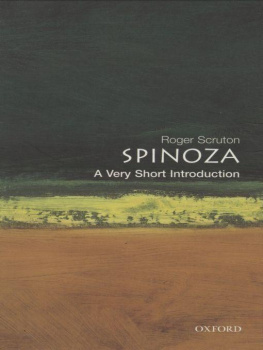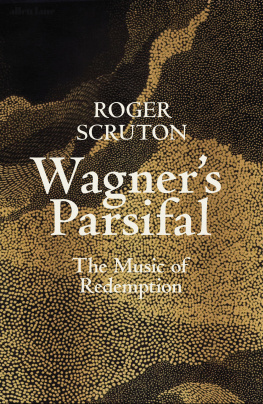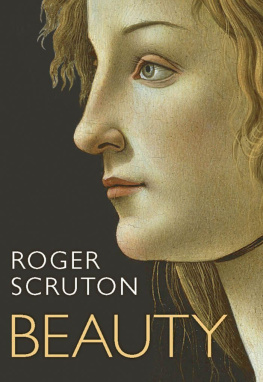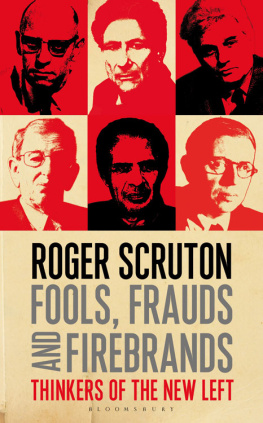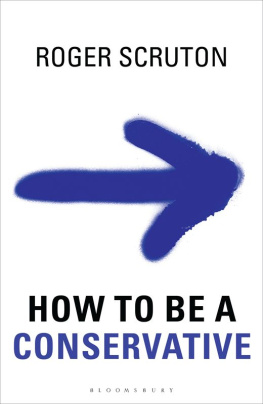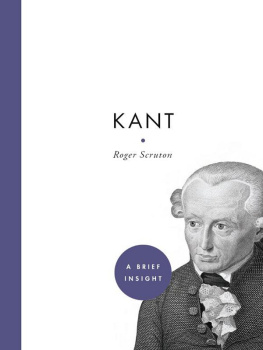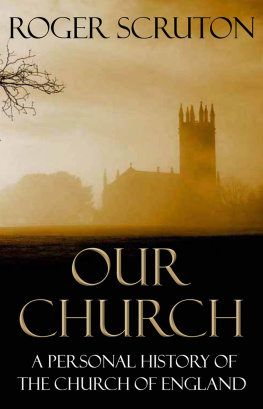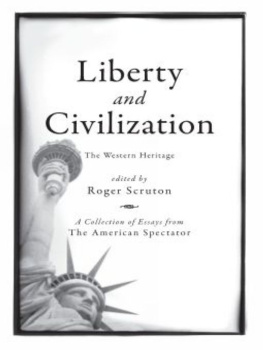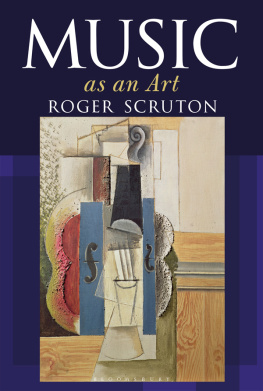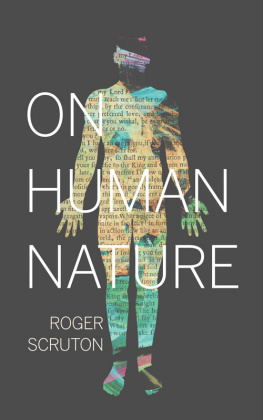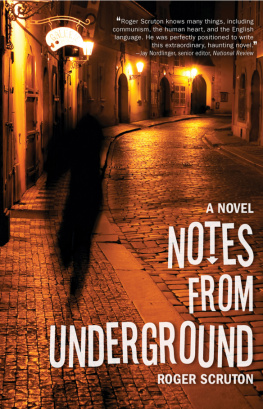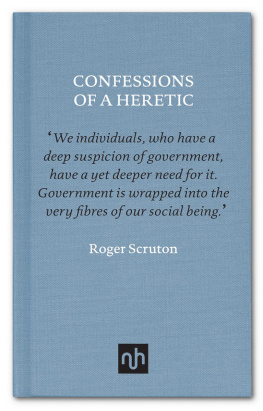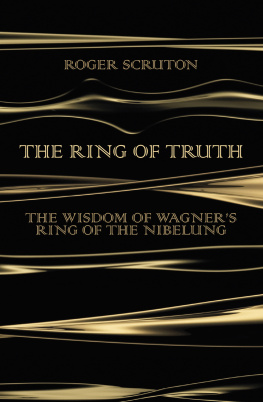
What remains when disbelief is gone?
Philip Larkin, Church going.
Contents
The first edition of this book was criticised for making so little mention of photography, cinema and TV. How can you write about modern culture, I was asked, if you say nothing about the most striking cultural invention of our times? I have therefore added a short chapter on the photographic image, in order to show how. I have even found something to say about television, and if I went on in this vein I could include a learned disquisition on junk food, baseball caps and chrome-plated Cadillacs. There are plenty of works on modern culture which attend to such things, indiscriminately rejoicing in every fashion or fad that could conceivably be given cultural credentials. But my purpose is not theirs: I wish to explain what culture is, and why it matters. I have therefore concentrated on philosophical questions concerning the moral life and the significance of our social emotions.
These questions are, it seems to me, vital to the future of what used to be called humane or liberal education the education of the emotions through the study of history, literature and art. We read of culture wars in the academy, with radicals ranged against traditionalists in a battle for the curriculum and for the minds and souls of the young. If we are to make sense of these wars, and to know whether they are the real thing or just a game, we need to study what culture is, how it is transmitted, and what it does to those who receive it. That is the purpose of this book.
Malmesbury, 2000
This book presents a theory of modern culture, and a defence of culture in its higher and more critical form. It is impossible to give a convincing defence of high culture to a person who has none. In the following book I shall therefore assume that you, the reader, are both intelligent and cultivated. You dont have to be familiar with the entire canon of Western literature, the full range of musical and artistic masterpieces or the critical reflections which all these things have prompted. Who is? But it would be useful to have read Les fleurs du mal by Baudelaire and T.S. Eliots Waste Land. I shall also assume some familiarity with Mozart, Wagner, Manet, Poussin, Tennyson, Schoenberg, George Herbert, Goethe, Marx and Nietzsche. In and 7 I offer criticisms of two important cultural figures Michel Foucault and Jacques Derrida. I have tried, though perhaps without success, to make these criticisms intelligible to people who have not read, and maybe do not intend to read, Foucault or Derrida.
Culture, I suggest, has a religious root and a religious meaning. This does not mean that you have to be religious in order to be cultivated. But it does mean that the point of being cultivated cannot, in the end, be explained without reference to the nature and value of religion. That suggestion is controversial; to many people it will seem absurd. Moreover, I have found no conclusive argument in support of it, but only avenues of speculation and associative thought. My consolation, in considering the inadequacy of what I have written, is that every other attempt I have come across is just as bad.
What follows would have been even worse, however, were it not for criticisms and suggestions offered by Fiona Ellis, Bob Grant, Jim Johnson, and David Wiggins, and I am greatly indebted to all of them. I am also indebted to the University College of Swansea, for inviting me to give the J.R. Jones Memorial . A part of this last chapter has appeared in City Journal, and I am grateful to the editor of that journal, Myron Magnet, for permission to re-use the material.
Malmesbury, Summer 1998
1
What Is Culture?
The concept of culture leapt fully armed from the head of Johann Gottfried Herder in the mid-eighteenth century, and has been embroiled in battles ever since. Kultur, for Herder, is the life-blood of a people, the flow of moral energy that holds society intact. Zivilisation, by contrast, is the veneer of manners, law and technical know-how. Nations may share a civilisation; but they will always be distinct in their culture, since culture defines what they are.
This idea developed in two directions. The German romantics (Schelling, Schiller, Fichte, Hegel, Hlderlin) construed culture in Herders way, as the defining essence of a nation, a shared spiritual force which is manifest in all the customs, beliefs and practices of a people. Culture, they held, shapes language, art, religion and history, and leaves its stamp on the smallest event. No member of society, however ill-educated, is deprived of culture, since culture and social membership are the same idea.
Others, more classical than romantic, interpreted the word in its Latin meaning. For Wilhelm von Humboldt, founding father of the modern university, culture meant not untended growth but cultivation. Not everyone possesses it, since not everyone has the leisure, the inclination or the ability to learn what is needed. And among cultivated people, some are more cultivated than others. The purpose of a university is to preserve and enhance the cultural inheritance, and to impart it to the next generation.
The two ideas are still with us. The early anthropologists adopted Herders conception, and wrote of culture as the practices and beliefs which form the self-identity of a tribe. Every member of the tribe possesses the culture, since this is what membership requires. Matthew Arnold and the literary critics whom he influenced (including Eliot, Leavis and Pound) followed Humboldt, in treating culture as the property of an educated elite, an attainment which involves intellect and study.
To avoid confusion, I shall distinguish common culture, which is what the anthropologist describes, from high culture, which is a form of expertise. This purely negative distinction does not tell us what high culture is, whether it is one thing or many, or whether it is the great value that Arnold and his followers have assumed it to be. Obviously, therefore, I must return to such questions; and the necessity is all the greater in that, unlike most people I encounter, I agree with Matthew Arnold. It is my view that the high culture of our civilisation contains knowledge which is far more significant than anything that can be absorbed from the channels of popular communication. This is a hard belief to justify, and a harder one to live with; indeed, it has nothing to recommend it apart from its truth.
Those two concepts of culture have been embroiled in controversy throughout modern times. From the debris of their many battles has grown a third conception. The common culture of a tribe is a sign of its inner cohesion. But tribes are vanishing from the modern world, as are all forms of traditional society. Customs, practices, festivals, rituals and beliefs have acquired a fluid and half-hearted quality which reflects our nomadic and rootless existence, predicated as we are on the global air-waves. Despite this, and despite all the conveniences and labour-saving devices that make other people more dispensable, modern city dwellers are as much social beings as were traditional tribesmen. They are unable to live in peace until furnished with a social identity, an outward garb which, by representing them to others, gives them confidence in themselves. This search for identity pervades modern life. Although it is a fluid thing, and may change direction several times in a lifetime, or even twice in a year, it has much in common with the tribesmans attachment to a common culture. The cultivation of identity is a mode of being-for-others, to use the existentialist jargon, a way of claiming space in a public world. At the same time it is founded in choice, taste and leisure; it is fed on popular art and entertainment; in broadest terms, it is a work of the imagination. In those respects it resembles the high culture of a literary and artistic tradition.
Next page

